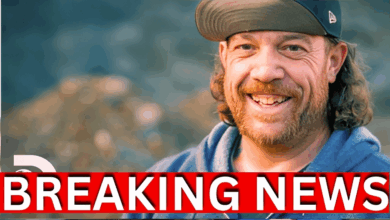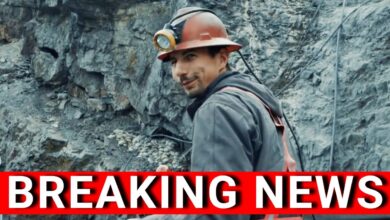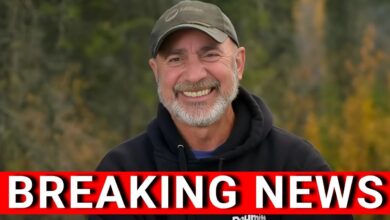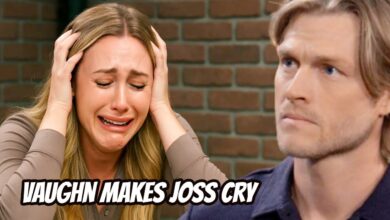DEVASTATING NEWS: Gold Rush Legend Kevin Beets Has Left Us
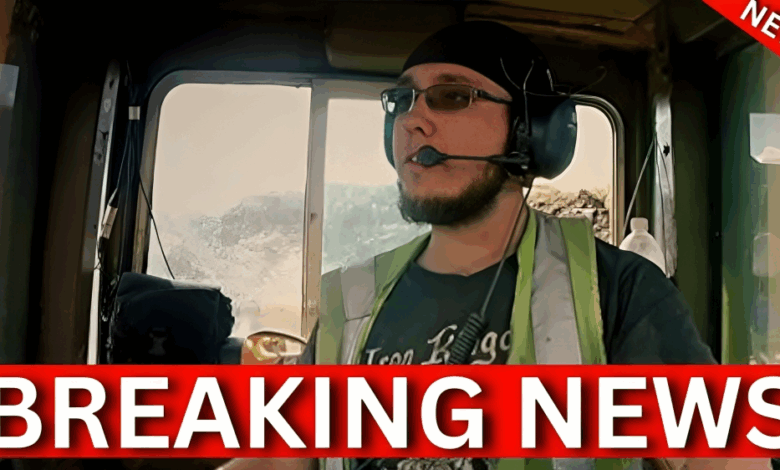
No Mercy in the Yukon: Parker Schnabel’s Ruthless Lesson Leaves Kevin Beets Reeling
In the cutthroat world of Gold Rush, survival isn’t just about digging up shiny nuggets—it’s about proving you have the grit to make brutal decisions. And no one embodies this cold-blooded business ethos more than Parker Schnabel.
While millions watch him on TV and imagine the thrill of striking it rich, behind the scenes Parker has built his empire on three merciless pillars: cold, hard numbers. His recent showdown with Kevin Beets didn’t just underscore that philosophy—it exposed the savage reality lurking behind the show’s adventure narrative.
Kevin Beets, son of the larger-than-life mining titan Tony Beets, dared to step out of his father’s colossal shadow this season. Determined to stand on his own, Kevin launched an independent mining operation, eager to prove he was more than just “Tony’s kid.” But the Klondike doesn’t give a damn about your legacy.
When Kevin’s critical A40 rock truck—ancient, battered, but indispensable—finally died in the middle of mining, his dream teetered on the brink of annihilation. With his season hanging by a thread, Kevin turned to the one man he thought might cut him some slack: Parker Schnabel.
He was dead wrong.
Armed with $100,000—everything he could scrape together—Kevin approached Parker, hoping for a break, maybe even a gesture of camaraderie born of years their families spent working together.
Instead, Parker greeted him with an icy dose of reality. Rather than offering a fair deal or even a decent piece of equipment, Parker shoved an equally decrepit 20-year-old A40 rock truck back across the table—slapping on a $110,000 price tag.
When Kevin tried to negotiate, Parker’s words were as blunt as the Yukon itself:
“I don’t haggle. Buy it or don’t buy it. I don’t really care.”
That was it. No pity. No favors. Just raw business.
Kevin, trapped with no better option, swallowed the bitter pill. He signed the contract, agreeing to the full price and taking on a ticking time bomb of debt—one that could explode if the old truck failed again.
From Parker’s vantage point, it was a masterstroke. He offloaded obsolete machinery at a premium, secured repayment without risk, and reinforced his reputation as the most uncompromising operator in the game. He didn’t let sentimentality or shared history cloud his judgment. For Parker, only the bottom line matters—and that’s why he’s feared and respected in equal measure.
Back at camp, Kevin’s crew managed to resurrect the battered truck. For a moment, spirits lifted as the engine coughed and roared back to life. But the reality was clear: every single ounce of gold he dug now had to pay for that truck—and prove he wasn’t just Tony Beets’ shadow.
The stakes couldn’t be higher. If the season went sideways, if another breakdown hit, if the gold veins ran dry, Kevin would be buried under the weight of that debt.
While fans of Gold Rush were riveted by the spectacle, this was more than TV drama—it was a brutal education. Kevin learned firsthand that independence in the Yukon has a savage price. This wasn’t just a lopsided deal—it was a trial by fire.
And Parker? He walked away richer, sharper, and more unflinchingly true to his ethos: no excuses, no sympathy—just results.
Whether Kevin Beets emerges from this crucible as a self-made mine boss or a cautionary tale is still to be seen. But one truth is undeniable:
The Yukon doesn’t care about your name. It doesn’t care about your dreams. It cares about whether you can survive. And Parker Schnabel has proven—yet again—that in this arena, only the ruthless thrive.

